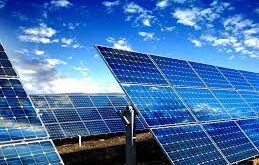China’s energy crunch pulled in more coal and gas imports in September, as buyers scrambled to ensure adequate supplies to counter a deepening power shortage ahead of peak winter demand.
Coal purchases rose 17% on the month to 32.9 million tons, the highest total this year, according to the customs administration on Wednesday, although the tally for the first nine months still lags last year’s pace.
Coal imports have been constrained as top supplier Indonesia prioritises its domestic needs. Covid-restrictions in Mongolia have also affected overland shipments, and China continues to push its neighbour for more supply to ease a shortage that sent futures rocketing to yet another record on Wednesday.
Gas purchases could only nudge up 1.8% to 1.06 million tons, as sky-high prices and a shortage on international markets affected buyers’ ability to secure enough shipments, although imports of the cleaner-burning fuel are still running 22% ahead of last year.
China’s import prospects and policies, including its yearlong ban on Australian coal, would doubtless have been a hot topic when the government briefs on the energy crisis yesterday in Beijing. The event included officials from the National Development and Reform Commission — China’s top planning agency — the National Energy Administration and State Grid Corp.
Elsewhere in the trade data, crude imports fell as inclement weather and a resurgent virus stalled purchases, while soybean imports plunged after Hurricane Ida snarled cargoes from the US.
Among metals, copper imports showed only a modest increase, despite power rationing and cuts to domestic production, due to the global container shortage and port congestion affecting South American and African suppliers. Iron ore purchases slipped as demand was hurt by output cuts at steel mills.
More broadly, China’s export growth accelerated in September, defying expectations of a slowdown amid the nationwide power crunch that has forced factories to cut production. Import growth softened as domestic demand weakened.

 Iran Energy News Oil, Gas, Petrochemical and Energy Field Specialized Channel
Iran Energy News Oil, Gas, Petrochemical and Energy Field Specialized Channel



